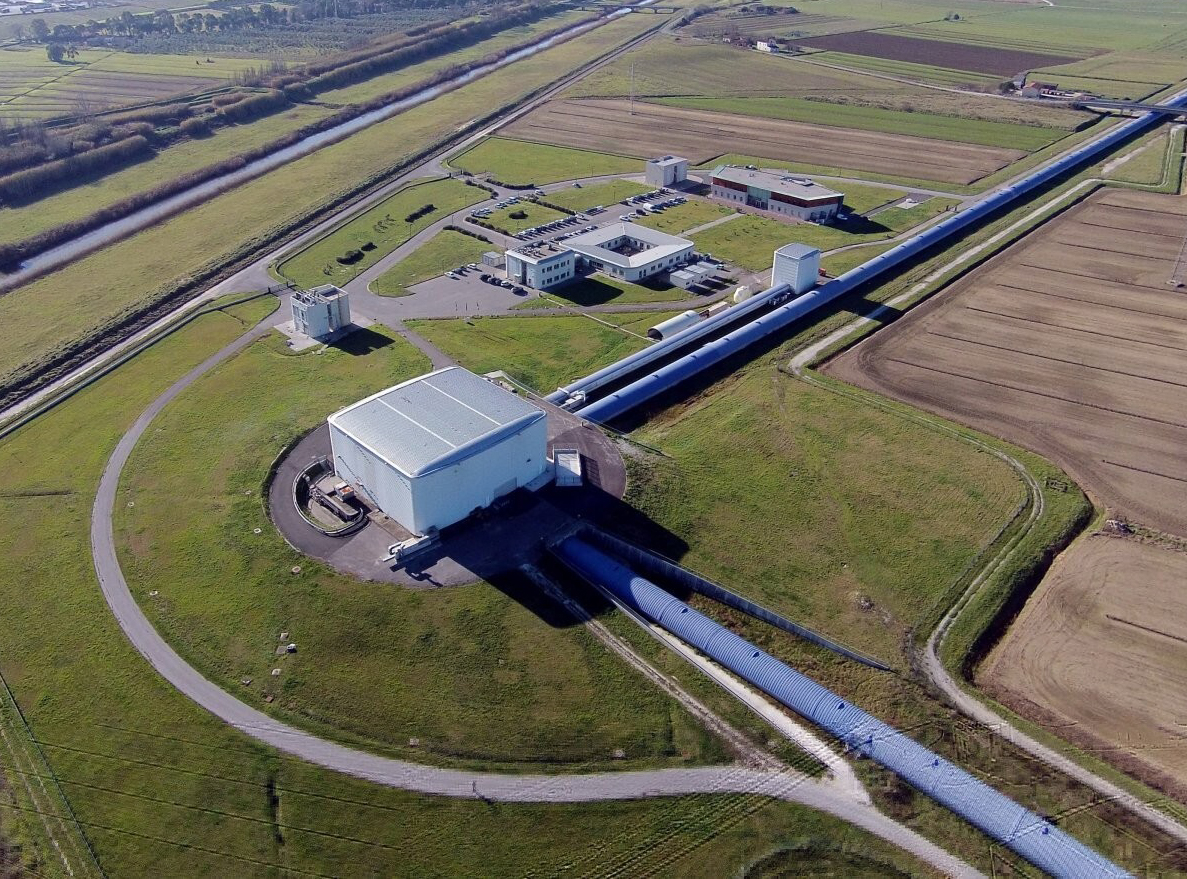News
NWO funding for further improvements to Virgo gravitational wave detector

The Netherlands is contributing 2.7 million euros to further improvements to the Advanced Virgo detector for gravitational waves in Pisa.
Science financier NWO is making funds available for this purpose from the Scientific Infrastructure research program (formerly the NWO Large program). This was announced today in The Hague. A total of 7 applications received 22.8 million euros.
The leader for the Virgo application is Nikhef, which was already closely involved in the construction and an upgrade program for the detector, also with NWO-Groot funding. GRAPPA spokesperson Samaya Nissanke was on the grant interview panel along with collaborators from Nikhef. “Gravitational wave science is still an exciting challenge for the instrument makers at Nikhef. This investment allows us to apply special technology upgrades to further improve the Virgo detector,” said gravitational wave expert Prof. Andreas Freise who leads the Virgo innovation project at Nikhef.
Virgo was closely involved in the first ever observations of gravitational waves in 2015, along with the two LIGO detectors in the US. Such vibrations of space and time occur, according to Einstein’s theory of relativity, when compact objects such as black holes collide. Gravitational waves make a new form of astronomy possible.
The new NWO budget is largely for new parts and components for the detector, particularly to make it even less sensitive to disturbing motions from the environment. This requires the design and construction of new sensors and facilities that actively keep the detector stationary. Nikhef has a prominent role in this, and is itself contributing 1.6 million for personnel.
Virgo observes gravitational waves with interfering laser beams, which show distortions of the detector’s kilometer-long arms. In 2018, Nikhef received 3.5 million NWO budget for, among other things, an optical filter cavity to reduce the quantum fluctuations of the laser beam. The new upgrade should further increase the availability of the beam for measurements.
The LIGO-Virgo consortium plans a new period of gravitational wave measurements later this month after years of work. The fourth round of measurements, O4, in which the new KAGRA detector in Japan is also participating for the first time, will last a year and a half.
In total, LIGO-Virgo has observed more than 90 gravitational waves since 2015, some from swallowing black holes or from colliding neutron stars. The observations are interesting both as tests of Einstein’s theories and for astrophysicists and cosmologists. In 2017, the founders of LIGO were awarded the Nobel Prize in physics.
Source : Nikhef press release